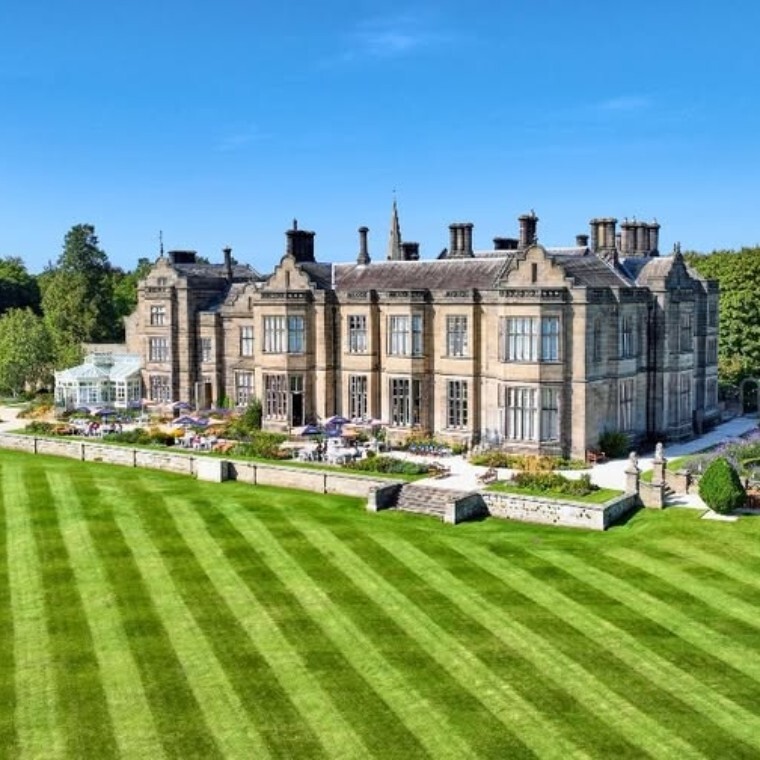We spoke to industry specialists to understand more about how Asian weddings are changing and why this is relevant to so many wedding venues who may never have previously hosted an Asian wedding.
Using a Hindu wedding as an example, a wedding day would consist of the Hindu faith ceremony, including a fire ceremony, immediately followed by a civil ceremony and then the reception. Some couples opt for the legal ceremony in an approved venue or register office on a different day. Food is a very important part of the reception in all Asian weddings, as is music and dancing.


A brief insight into Asian wedding ceremonies
There are three main ceremonies that we see most of in the UK. They are:
- Hindu Weddings - These are predominantly held in hotel and event venues licensed for civil ceremonies, rather than Hindu temples. They involve a small ceremonial fire, which is the main consideration for a venue. See below for more information on how venues accommodate that within their HSE regulations.
- Sikh Weddings - these are predominantly held in Gurdwaras, the Sikh place of worship with the receptions being held in hotel and event venues.
- Muslim Weddings- the religious ceremony, the Nikkah, is carried out by the Imam, usually in an event venue or hotel. The ceremony takes around 20 minutes and is followed by a reception. The legal wedding takes place in the register office or an approved venue at another time.
The key considerations for venues hosting Asian weddings
Does your venue permit ceremonial fires?
- For Hindu wedding ceremonies - there is a ceremonial fire that forms an essential part of the proceedings. It's safe indoors, typically risk assessed by the supplier of the vessel the fire would be in and is monitored from the moment it is lit through to it being removed from the room. Your risk assessment will need to reflect the need to isolate your smoke alarms during the ceremony and have someone on standby with a fire extinguisher, however you can be assured that even the most prestigious venues such as Claridge's and The Savoy allow these types of ceremonies.

Is your venue "Dry Hire" and do you permit external catering?
- Dry hire - Asian weddings typically include large numbers of guests and flexible guest lists. They have access to a network of suppliers that cater specifically for this market to hire everything from the ceremonial elements to the tables and chairs. Some venues offer dry hire conditional on using suppliers from an approved list, others allow couples to choose who they bring in. Prices are usually based on hire of the venue, rather than a per-person cost.
- External caterers - the meal typically served after the wedding ceremony is a really important element of the day and the preference is for authentic Asian cuisine (e.g. Indian, Sri Lankan, Pakistani). Even if your chef can cook Asian dishes, the couple will almost certainly prefer to use their own caterers. However, some catering companies can pre-prepare dishes for your venue to serve. If you have valuable rugs and carpets in your venue it is worth bearing in mind that some of the spices used in authentic cuisine, particularly turmeric, can stain.
Does your venue have noise limitations?
- Asian wedding receptions often involve loud music - this can be an issue if you have a noise limiter that will cut out from loud music or clapping. It may also be a consideration if there are other guests staying in the hotel or nearby.
Do you have multiple rooms?
- For Hindu weddings - ideally the religious ceremony and civil ceremony will be in different rooms with one following immediately after the other, so two rooms of similar size are ideal, with the first one then being quickly changed around for the reception.
What is your capacity?
- Asian weddings have traditionally involved large guests lists. Since Covid, it's been acceptable to have lower guest numbers. An Asian wedding is typically over 250 guests although an increasing number of couples limit their guest lists to around 150.
And finally ... is that your best price?
- Negotiation is normal - negotiating on price is a normal part of any Asian wedding bookings so be ready to negotiate a little if you can, but regardless, don't be offended by the question!

Interested in finding out more?
LaToya Patel is a wedding planner who specialises in finding unusual venues for her couples so is familiar with helping venues understand all that's required to host these diverse and colourful events. She joined us for a one-off Zoom session to help venues develop their offering to suit Asian couples, as shown on the video below. Please note that it was recorded during COVID so may have some references to restrictions in place at that time.




